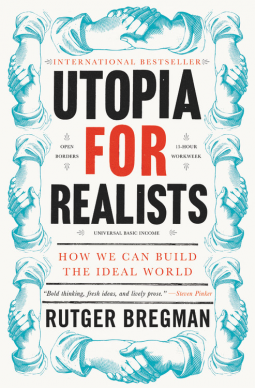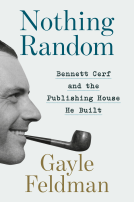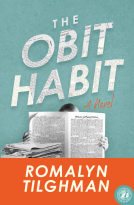
Utopia for Realists
How We Can Build the Ideal World
by Rutger Bregman
This title was previously available on NetGalley and is now archived.
Send NetGalley books directly to your Kindle or Kindle app
1
To read on a Kindle or Kindle app, please add kindle@netgalley.com as an approved email address to receive files in your Amazon account. Click here for step-by-step instructions.
2
Also find your Kindle email address within your Amazon account, and enter it here.
Pub Date Mar 14 2017 | Archive Date Jun 03 2020
Description
"A more politically radical Malcolm Gladwell." -- New York Times
After working all day at jobs we often dislike, we buy things we don't need. Rutger Bregman, a Dutch historian, reminds us it needn't be this way -- and in some places it isn't. Rutger Bregman's TED Talk about universal basic income seemed impossibly radical when he delivered it in 2014. A quarter of a million views later, the subject of that video is being seriously considered by leading economists and government leaders the world over. It's just one of the many utopian ideas that Bregman proves is possible today.
Utopia for Realists is one of those rare books that takes you by surprise and challenges what you think can happen. From a Canadian city that once completely eradicated poverty, to Richard Nixon's near implementation of a basic income for millions of Americans, Bregman takes us on a journey through history, and beyond the traditional left-right divides, as he champions ideas whose time have come.
Every progressive milestone of civilization -- from the end of slavery to the beginning of democracy -- was once considered a utopian fantasy. Bregman's book, both challenging and bracing, demonstrates that new utopian ideas, like the elimination of poverty and the creation of the fifteen-hour workweek, can become a reality in our lifetime. Being unrealistic and unreasonable can in fact make the impossible inevitable, and it is the only way to build the ideal world.
Advance Praise
"Rutger Bregman is part of a new generation of thinkers who are suggesting exciting alternatives to the orthodoxies of the last forty years. In this surprising, accessible, and often counterintuitive book, Bregman explores some brilliant but simple ideas for making a better world." —Brian Eno
"If you're bored with hackneyed debates and decades-old right-wing and left-wing clichés, you may enjoy the bold thinking, fresh ideas, lively prose, and evidence-based arguments in Utopia for Realists." —Steven Pinker, New York Times bestselling author of The Blank Slate and The Better Angels of Our Nature
"Utopia for Realists is fantastic. A quick glance turned into hours of riveting reading. Very seldom does a book change the way you think about some of most intractable problems of society, and of life. This one did. Read this book." —Sydney Finkelstein, director of the Tuck School of Business at Dartmouth College and author of Superbosses: How Exceptional Leaders Master the Flow of Talent
Available Editions
| EDITION | Other Format |
| ISBN | 9780316471893 |
| PRICE | $28.00 (USD) |
| PAGES | 336 |
Links
Average rating from 8 members
Featured Reviews
I loved the ideas behind this book. I'm not fully convinced that if we (as Americans) went out on a ledge to try something this different that it would be successful. The chapter on open borders was excellent and all the more relevant given the issues currently facing Europe and GB. He has a good way of making fairly complicated economic functions understandable, and I particularly enjoyed his views on GDP as an indicator of how well a society is functioning for its citizens. In no way would I say this book is written as a balanced treatise. It's more of a manifesto. I'm certainly not opposed to dreaming big and we do need to think outside the box to solve the worldwide pervasive problem of poverty. I think a basic income system is worth a good long look and possibly a pilot program. Before reading this book I had no idea that Nixon had already tried it. What I know from experience is that people are trapped in their circumstances in a way that only money can fix. I also enjoyed the foray into the world of The Jetson's, a world I felt that I had been promised and have yet to receive. George Jetson had a nine-hour workweek which seems legit in a society where robots are doing most of the manual labor. Mr. Bregman suggests a 15-hour workweek that I feel is a pipe dream at this point in American history.We would need to reverse the current incentives. Right now it's cheaper for employers to have one person work overtime than to hire 2 part time mostly because health care benefits are paid per employee instead of per hour. Basically, he says that either collective action by companies or countries would have to take place. I would be a fan of both the shorter work week and the basic income. At this point we need to make huge sweeping changes, I'm just not sure enough people understand that. Despite my misgivings about some of the conclusions that the author draws I do recommend this book. It's out of the box thinking and if nothing else can supply readers with plenty to discuss and debate.
I read a DRC of this book from NetGalley in exchange for an honest review.
We have lost our vision, Rutger Bregman writes, mired in old paradigms and blind to the possibilities we should be imagining. We could be realizing the world predicted by 20th c thinkers.
Subtitled "How We Can Build The Ideal World," Utopia for Realists is an international best seller, first published in the Netherlands where it ignited a debate and inspired a movement.
Bregman begins by reminding us of how recently life was a "vale of tears," "solitary, poor, nasty, brutish and short," as philosophers wrote in the 16th c. With the explosion of new technology and prosperity over the last two hundred years, humanity has achieved a standard of living that Medieval folk would consider Utopia; indoor heat and cooling, flush toilets and clean water alone would make them marvel. So would obesity from an overabundance of easily obtained food, the magical ability to protect ourselves from smallpox and polio, and paved roads we travel at 70 mph--without fear of highwaymen robberies.
Have we reached Utopia? Or is there something we can do to make life even better? How can we solve the problems that remain: fearfulness, unemployment, quality of life, poverty.
The welfare state 'from a bygone era' doesn't work today. Globalization and the cost of higher education have impacted the stability of the Middle Class. Upward mobility for the poor no longer happens.
Bregman wants to "fling open the windows of our minds" to discover "a new lodestar." He presents studies and experiments about how we treat the homeless and the poor and challenges our traditional mindset that people are to be blamed for their own poverty--they just have to work hard and save. We have created welfare programs for those in need, which are costly and do not solve the basic problem. What happened to the expectation of the 15-hour workweek? Why are we spending more time working, impacting our health and our families?
Bregman wants us to dream new dreams and embrace ideas that can change the world for the better. Thinking outside the box has made a difference: abolition, universal voting rights, and same-sex marriage, he reminds, were all once considered impossible. All it takes is "a single opposing voice.
The basis of Bregman's new Utopia is a guaranteed basic income. He presents studies that demonstrate the success of such programs. In 1967 universal basic income was supported by 80% of Americans and President Nixon submitted a bill to eradicate poverty.
Other changes he offers include shorter work hours, proven to increase productivity, reconsidering the importance of the Gross Domestic Product as our economic standard of success, improving quality of life, open borders, taxing capital instead of labor, and adjusting salary to a job's societal value. At a time when productivity is a record levels, there are fewer jobs and lower salaries. "We have to devise a system to ensure that everybody benefits," he writes.
There is an old saying: Insanity is doing the same thing over and expecting different results. Instead of holding more tightly to the old ways we need to envision innovation. Perhaps books like this will spur discussions and reevaluations.
One can only hope.
I received a free ebook from the publisher through NetGalley in exchange for a fair and unbiased review.
Readers who liked this book also liked:
Jennie Batchelor, Julia Quinn, Natalie Jenner, Charlie Lovett, Talulah Riley, Janet Todd et al
Essays & Collections, Novellas & Short Stories, Women's Fiction
James McBride
General Fiction (Adult), Historical Fiction, Literary Fiction
Sean Sherman; Kate Nelson; Kristin Donnelly
Cooking, Food & Wine, History, Multicultural Interest
Pelumi Olatinpo
Essays & Collections, Multicultural Interest, Politics & Current Affairs


















